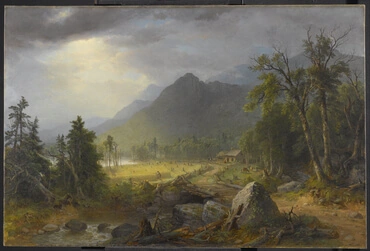First

In some casual references “first” has a pretty literal meaning, as the beginning of a group; on a deeper level the “first” represents the entire group. In connection with measurements of time -- days, months, hours etc. -- it means the beginning of a new spiritual state. It is also used in connection with the Lord, who is the “first” of all existence, because everything is a product of His love. “First” is perhaps most commonly used, however, to represent what people love and desire, because what we love and desire is “first” in us, with our thoughts and intellect following. If we love people around us and desire to serve them, our ideas will follow and find ways to do it. It does not, however, work the other way around -- having ideas of how to be good won't mean anything if we lack the desire to be good. Our loves, then, contain the key elements of all that we are.
Arcana Coelestia # 7891
7891. 'And on the first day there shall be a holy convocation' means that at the beginning all must be together. This is clear from the meaning of 'the first day' as the beginning, that is to say, of the deliverance from those who have molested, and so from damnation; and from the meaning of 'a holy convocation' as the regulation that all must be together. The people were called to convocations in order that the whole of Israel might be assembled together and so represent heaven; for all were divided into tribes, tribes into families, and families into households. Regarding the representation of heaven and the communities there by the tribes, families, and households of the children of Israel, see 7836. Here was the reason why those convocations were called 'holy' and were held at each feast, Leviticus 23:27, 36; Numbers 28:26; 29:1, 7, 12. And the feasts themselves were consequently called 'holy convocations', for all male persons were commanded to be present at them. The fact that the feasts were referred to as 'holy convocations' is clear in Moses,
These are the appointed feasts of Jehovah, which you shall call holy convocations, to present a fire-offering to Jehovah. Leviticus 23:37.
The fact that all male persons were to be present on those occasions is clear in the same author,
Three times in the year all your male persons shall appear before Jehovah your God in the place which He will have chosen - at the feast of unleavened bread, at the feast of weeks, and at the feast of tabernacles. Deuteronomy 16:16.






